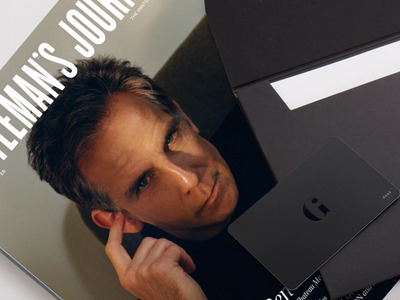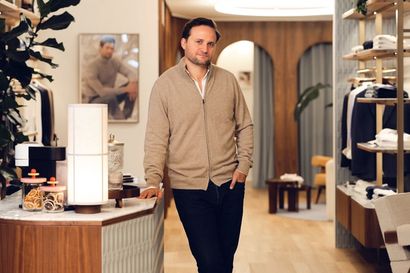With interest in health and wellness rising globally, there’s never been a better time for entrepreneurs to enter the fitness industry – as James Balfour well knows. The son of Fitness First founder Mike Balfour, growing up James had front row seats to the ever evolving fitness industry and, after quitting an investment banking gig to climb Everest at the age of 24, knew the time was right to launch his own venture in 2014.
Today boutique fitness chain 1Rebel, known for its lively spin classes and gruelling Reshape programme, boasts eight studios across London, a valuation of £36 million and plans to expand internationally. Here the founder tells us how he built his business, the advice he swears by and what makes a successful entrepreneur…


I’ve been in the fitness industry almost all my life – I grew up watching my father expand his business to 550 clubs across 27 countries. By the time I’d left university the last thing I wanted to do was join the industry myself so I opted for banking in the City. After I climbed Everest, I joined forces with my father to set up a chain of fitness clubs in Eastern Europe called Jatomi Fitness. We grew it to 70 venues across seven countries but I was really the junior partner. I noticed what was happening in the US with boutique fitness and felt there was more that could be done. I left the company and joined forces with my business partner, Giles Dean, to found 1Rebel in the hope that we could bring something new to the consumer.
In the beginning, getting funding and signing our first lease were challenging hurdles to overcome. We had to lean heavily on our experience in the industry to get people to back a totally new concept. We’ve been successful because we put the customer first and at the heart of every decision we make. There is such a thing as bad profit – we think long term and care passionately about the customer experience.
"Never lose sight of the goal and welcome adversity. No-one learns anything climbing a mountain on a sunny day."
As corny as it may sound, the best thing about having my own business is my team. They are young, passionate and creative. We work hard together, play hard together, and I miss them when I’m away. I already worry that if I exit the business it will be like losing a family. I guess I don’t get to ‘switch off’ like others do but, when I contemplate doing it, I just ask why I would want to. The business is my life and I am happy with that.
My mother passed away last year. She was a teacher and, when I used to go on expeditions, I would raise money to build schools in Sierra Leone and Liberia in her name. We built six but when she passed I promised that, in my lifetime, we would expand that to 200. My hope is that by being successful in business I can do some good. Keeping her name alive is what motivates me.
I would tell any young entrepreneur to find a mentor with grey hair and life experience. That and to never lose sight of the goal and welcome adversity. No-one learns anything climbing a mountain on a sunny day. On a practical level, I would also say, when you create a business plan, reduce the profitability by 25%. If it still works, go for it. Then remember that a good idea is useless without the ability to execute it. No-one ever achieves something meaningful alone – having a great team will define your ability to realise your vision.
The phrase I remind myself of on a daily basis comes from Winston Churchill: “Success is not final, failure is not fatal, it’s the courage to continue that counts”.
Looking for more business advice? Here’s the gentleman’s guide to global business etiquette…

Become a Gentleman’s Journal Member?
Like the Gentleman’s Journal? Why not join the Clubhouse, a special kind of private club where members receive offers and experiences from hand-picked, premium brands. You will also receive invites to exclusive events, the quarterly print magazine delivered directly to your door and your own membership card.


